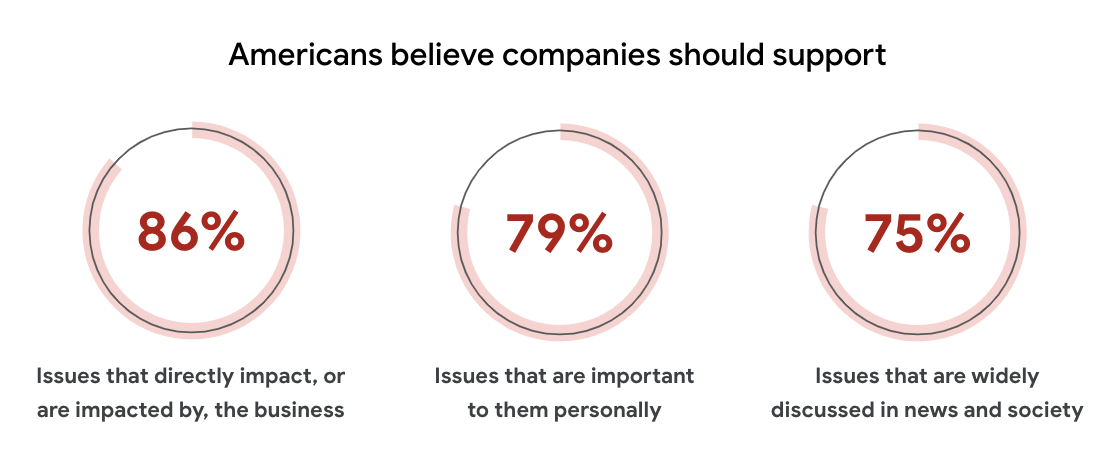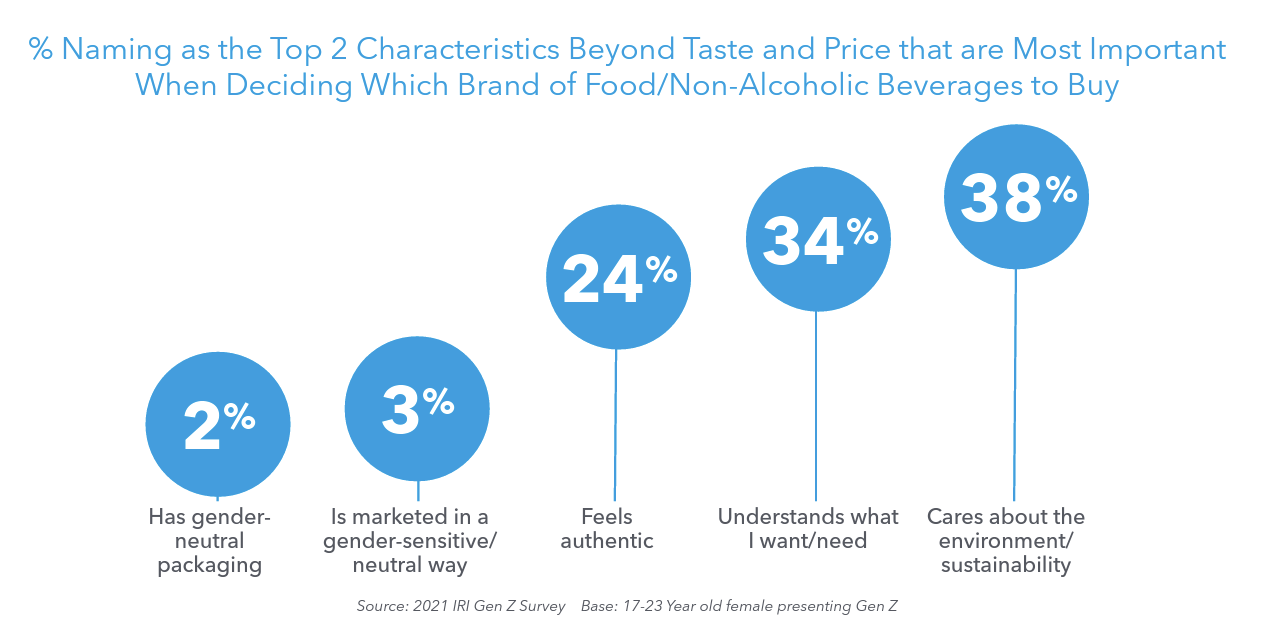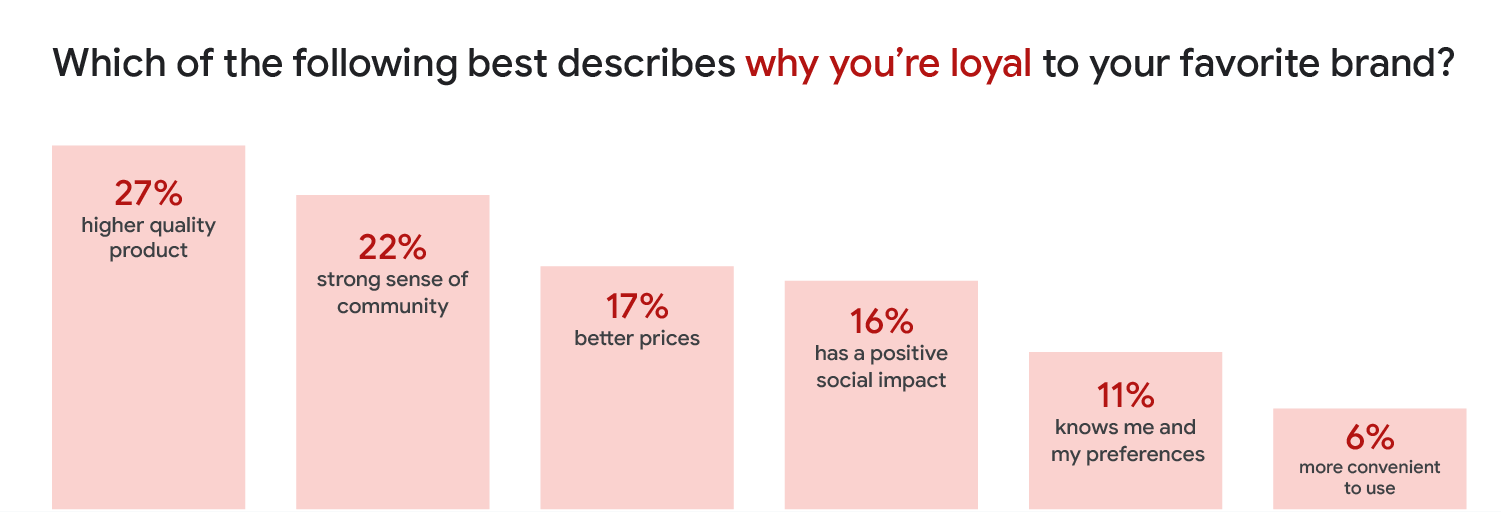Advertisers have traditionally focused on the product or service at hand when they’re crafting marketing messaging, but consumer expectations are changing.
More and more, they expect brands to invest in true relationship building, including aligning on values and speaking up on the issues that matter most to them. It’s no longer an option to sit on the sidelines.
That doesn’t mean that quality, reliability, and price aren’t still front of mind, consumers just want more from the brands they choose to purchase from. They expect brands to earn their attention and their business.
Our experts teamed up with Google and the University of Michigan Ross School of Business to explore how today’s marketers can balance their core business objectives with a growing need to connect with customers.
The disconnect: brands that focus on conversion alone aren’t going to win today’s consumers
Consumers as a whole are becoming more socially and politically conscious purchasers, partly as a result of how readily available information about brands is online.
The corresponding pressure to prioritize authenticity and value alignment in marketing while still serving product- or service-focused messaging in ad campaigns has increased exponentially.
According to a Porter Novelli/Cone study, 76% of consumers expect businesses to positively impact society instead of just making money and 70% feel a deeper personal connection with companies that share similar values to their own.

Marketers are then faced with a bewildering variety of potential issues or questions their brands could or should support or weigh in on, as well as the fear of being perceived or even called out as opportunistic or performative.
That leads us to the first big question: where does it make sense for your brand to join the larger conversation? In general, your shortlist should start with causes that are relevant to your business, industry, customers, or even employees. According to the same study, 86% of consumers believe that companies should support issues that directly impact or are impacted by the business.
The second question is a little more complicated: where is your business taking action? Marketing should have a place at the table for larger conversations around brand values and related initiatives, but you’re far more likely to face charges for inauthenticity if the actions (or lack thereof) your business is taking don’t align with the values you’re injecting into your marketing campaigns.
It’s not enough to just talk about it; consumers are savvier than that, and quick to point out when there is a disconnect between what a brand is saying and what they’re doing.
Brands have more options than ever to cultivate a long-term relationship with their consumers, and marketers have a very valuable resource on hand that can help shape the broader internal conversation: data. Those insights can reveal what customers care about and want from your brand.
The challenge: effective brand connection needs to be founded in meaningful action, not just messaging
Traditionally, established brands have tried to stay politically or socially agnostic to avoid alienating groups of customers. In the process, they’re missing out on the opportunity to resonate with the very consumers they were trying to please.
Gen Z is a great case study for the value of authenticity in marketing because they have much higher expectations when it comes to brand/value alignment as a core part of their decision-making process. With an estimated direct buying power of $143 billion, they’re the future of your business.
“Gen Z expect brands to both provide them with valuable information about their products or services and reflect their own expectations around social responsibility as a key part of their personal identity.”
On example: in recent research from IRI, the top characteristic Gen Z considers after taste and price when it comes to evaluating brands of food and non-alcoholic beverages is sustainability and the environment.

Marketing data is a way to go straight to the source, find out what they care about, and give the consumer a voice when setting your strategy. Directly surveying consumers can give you even more insight into their priorities. It also is a way to create a two-way conversation and build a sense of community that drives loyalty, another key piece of the brand connection puzzle.
Yotpo indicates that 56% of consumers are willing to spend more with a brand they’re loyal to even if there are cheaper options elsewhere, and Clarus Commerce notes that the second highest driver of consumer loyalty is a strong sense of community.

The solution: marketers should act as an advocate for customer needs and concerns to build brand connection
You can’t expect marketing to make decisions about your brand’s mission or values in a vacuum.
Instead, you should make your customers a key stakeholder driving those conversations while acting as an advocate for consumer needs and concerns that are relevant to your business.
Work to establish strong relationships and long-term loyalty with consumers by focusing on what consumers truly value and want, then working with other teams in the business to turn those priorities into action.
You can use this checklist to build better brand connection with consumers and center values in your marketing in an authentic way.
- Identify causes and issues to prioritize that authentically align with your brand’s priorities and resonate with consumers.
- Leverage data-driven insights to bring the voice of the consumer into the larger conversation: what are their expectations, what do they need to hear from the brand, and what is important to them?
- Start conversations with internal teams to learn what actions the business is already taking and what more the brand can do to lean into priority values and issues.
- Assess touchpoints across the funnel to build hypotheses around where and how values-focused messaging or creative will be most effective.
- Invest in campaigns focused on building loyalty with the brand’s highest-value customers, not just new customer acquisition.





